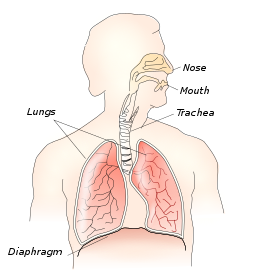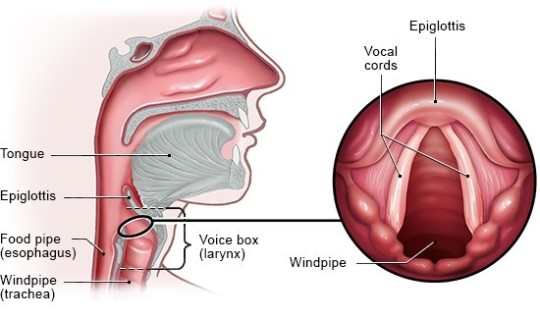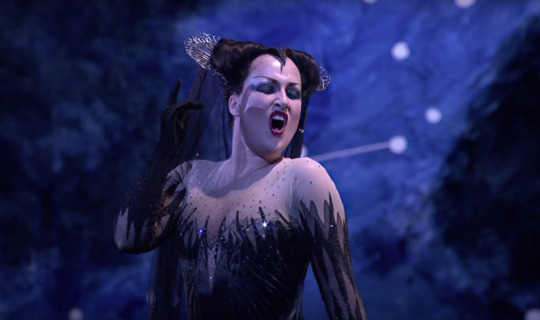#i think it might be my diaphraghm?
Explore tagged Tumblr posts
Text
The worst feeling in the world was being mid motion and experiencing a muscle just spasming like a 13 year old at a black light themed dance party for a solid two minutes until suddenly every muscle in my torso and my entire intestinal tract relaxed like bitch what the FUCK was that and why did you decide to Crazy Frog your way to a sense of emotional and physical security?
I have spent the last five days in varying levels of pain from *curled up in the fetal position on the floor sobbing* to *dissociating to survive the day* and sleeping barely 3 hrs a night and absolutely nothing has helped, not ice packs, not hot baths, not my pain meds (otc or prescribed), not physio, nothing.
I drag myself to therapy today (bless wifey for driving my whimpery butt in) preparing to mumble my way thru a session and my therapist just listens like he has been, starts the same somatic work we've been doing for a month now, and within THIRTY GODDAMN MINUTES I FEEL FUCKING FINE??????
Therapist gently reminds me that you can't just turn on all the signals again after they got turned off for literally never not having sething wrong and expect to not be in pain. Right. Tuning into the body again means becoming aware of all the things that hurt. Becoming aware of all the things that hurt means having a panic response and trying to "survive" overwhelming and unliveable amounts of pain. I have to keep responding to and winding down that pain as well as my body's autonomic response, or all I'm doing is retraumatizing my system. Hahahahahaha. Fuck.
I fucking hate my flesh suit. It is the worst. Apparently I get to spend all day every day doing somatic exercises now or my body collapses in spasming horrors. Anyway, I feel like a fucking cement roller has been dancing the Moringa on my fucking spine, but at least I'm capable of lying down without screaming again.
Time for another round of stupid somatic body/breath work again I guess.
#every few minutes the muscle just like#throbs with this hollow ache#and I'm reminded of spending the last several days trying to massage it or trigger point it or accupressure it into obedience#i think it might be my diaphraghm?#literally the worst case scenario if so#explains why my breathing has been so fucked#whatever muscle it is i hope that it fucking chills out soon and accepts relaxation as its natural state#i don't know that i can do hourly somatic work forever lmao
8 notes
·
View notes
Text
So another thing I've been thinking about while browsing randomly through fanfics (but this is also something I notice when reading published novels): it really isn't that well-known how singing works, is it?
I find this lack of accessible information a shame.
So let's talk a bit about singing.
In the world of classical music, a singer is usually seen as a bit of a dunce who knows nothing about musical theory and whose singing parts are so undemanding that any instrument could sight-play it, i.e. see the sheet music and correctly play the tune although you are seeing it for the first time. This is what my violin teacher used to say anyways and she is right but she is also wrong.
Singing is both terribly intellectual and terribly unintellectual at the same time. Let me explain.
When I was a kid - before puberty that is - I could sing whatever music was in my head. I was a bit unusual in that but generally kids can sing really naturally, without having to learn complicated techniques, and they'll be fine. The biggest hurdle is that they have to internally hear what they will be singing. But then your voice does it right automatically; I mean pretty much.
I used to be in a children's choir where we had a fantastic choir teacher who had the ability to train kids to develop a sense for the melody they were hearing and make them realise what it was they had to sing. My position on this is that the main hurdle for children really is music perception; training the voice, yes, that too, but more in the sense of - you'll be a better runner if you go running regularly.
In that sense singing is really unintellectual because the melodies we sing - even if you do sing second voice - are not that difficult. Compared to violin playing in the orchestra, choir singing is really chill.
However -
Puberty hits and everything goes to shit.
Puberty hits boys much harder than girls, but even girls have a voice break and their voices work very differently afterwards. This is the point where you really have to learn how to sing - and this is where the intellectual part comes in.
Singing is shit because you can't see your instrument - and let me tell you, your instrument is moody af. Violin players like to joke about the brass players because brass instruments are so sensitive to colder temperatures that you might start playing flat in the middle of a piece and then need to do some jedi-ninja shit with your mouth to make your instrument go a tad higher.
Singing is so much worse. (And I love it very much but it is the worst.)
People assume they know how singing works, right, you breathe in, you breathe out and make a sound with your vocal cords, like speaking but a bit different, and if you want to sing loud you open your mouth really wide...
No no. I mean to an extent yes but mostly no.
The first thing is proper breathing and this needs to be trained. Classical singers are particularly pernickety about this because we don't use microphones and need to be loud without blowing our voices out, so breathing is very important.
Apart from our lungs, the most important thing for breathing is the diaphragm.

(image taken from here: https://commons.wikimedia.org/wiki/File:Respiratory_system.svg)
The diaphragm is like an elastic membrane muscle (not a medical professional :) ) that helps create a vacuum in our body that then helps suck in air - this is us breathing in. Breathing out, too, is controlled by the diaphragm - you can try this out yourself: if you breathe out with a hiss, you can controll if it is a short intense hiss, or a longer, softer one.
The first thing singers learn is how to feel the diaphragm, we usually do this by either lying on the floor and doing breathing exercises, like producing short huffs; we mostly produce consonants like t, p (plosives) because then you can feel short jolts in the middle of your body (this is your diaphraghm yey); you can also place your hand on your belly, then you will feel it even more pronounced. You can also feel your diaphragm when you are laughing (or chuckling); when you laugh so hard it hurts, that is your diaphragm.
And then we do all kinds of stuff with the diaphragm, the goal is the most efficient use of air, and also how to breathe without tensing up. Generally, you should always stand straight, feet as wide apart as your shoulders and your ribcage should feel wide because the more open you are, the more air can "fall in" (This is what we call it in German, sorry if it sounds weird.)
Then comes your larynx and your vocal cords, as with breathing, if you tense up and your larynx rises up instead of staying low, this will be painful for your voice after a while (and also it is ineffective).

(image taken from here: https://www.informedhealth.org/how-does-the-larynx-work.html)
The vocal cords are really only important in the sense that you need to learn to channel the right amount of air through them. Too much air makes the sound go all breathy, not enough air and too much pressure will give the sound a sharpness and it will also start hurting after a while. Usually people who use too much air pressure also lift their larynx, both of which is bad so don't do it. I can't actually tell you how one determines if you use the right amount of air, I can only tell you that I know how to and that we work with LOTS of imagery in a singing lesson - I will say more about this in a bit.
Finally comes your resonance space (we call it "Resonanzraum") - most people will probably immediately think of the mouth - yes, that's sort of true - but the ones you are really interested in are the one in your chest area, and your entire head - and by that I mean the various cavities that we have in our head, basically everywhere where you can get sinusitis - your nose, your forehead, the area around your cheeks.

(look at their faces, without hearing them, you can already tell they are classical singers; screenshot of this video: https://www.youtube.com/watch?v=C1ZL5AxmK_A)
One of the things I really enjoy about having been trained is that you learn to do stuff that people will disbelieve is even possible.
Remember what I said about - it's not true that you have to open your mouth widely to be loud? It gets even better. You don't even need to change the opening of your mouth to produce different vowels. Your tongue does everything for you - I can sing an entire song for you while holding something with my teeth. The tongue does the basis and the rest is all projecting the sound to the right cavities. As I mentioned in an earlier post, my a-vowels were pronounced to be shit by my singing teacher - but it was not like: ah, you are so incompetent but rather: ah, your nose is simply not pronounced enough, no proper space for the a's!
This is a very, very rough outline of what goes into singing - and as I said before: you can't see any of it. And you usually don't consciously feel any of these things happening either.
And this is where it gets really intellectual and the point where I would say: singing is so demanding to get right, you other instrument players have no idea.
Learning singing is like a double-edged sword (and now here comes the reason why we work a lot with imagery): one of the worst things for a singer to be is to tense or too self-conscious. It'll make you clam right up, it will lead to you overusing your voice, it will make the sound off and your voice hurt within a very short amount of time. But the problem is obviously: you have to be really self-conscious in order to feel all this weird stuff your body is supposed to be doing.
So singing teachers work with imagery - and try to make you feel loose and relaxed and unselfconscious while getting you to activate all the right muscles and project to all the right spaces. I am honestly in awe of the creative competency of singing teachers in this area.
You can imagine it like this: you're standing in a room, feet as wide apart as your shoulders, you have just let your breath fall in, your ribs are wide, your eyes are twinkling because you are trying to activate the mask (the mask is the resonance space around the cheeks, super standard and very important), and then at the same time you have to imagine that you are a lion who is at the same time an elephant, who is wearing a hoodie whose hood you are casually flipping on your head. And this is still fairly simple.

(image taken from here: https://www.fotocommunity.de/photo/flehmender-loewe-karl-heinz-weiss/35170352)
If you have read this far and want to suffer through some more random info :) - I can actually explain what that particular imagery was for, it had to do with getting the vowels in the right resonance spaces.
I don't actually know why but pretending to be a roaring lion who is wrinkling his nose is actually really useful to get a good feel for where the a-vowel should go. Check out Diana Damrau as Queen of the Night, that is a classic lion face. The roaring lion really helps with the focus while the elephant and its trunk are helpful to become more aware of your nose (so roaring lion is more advanced and elephant trunks is for idiots like me who have trouble feeling their nose), the hoodie thing goes in a similar direction as the elephant trunk.

(Now, who is the lion and who is Diana Damrau? ; image taken from here: https://diana-damrau.com/de/photos/opera/screen-shot-2017-11-08-at-16-33-32/)
And this was just the imageries - specifically for me - to produce the vowel a. We are not even talking about staccato, or runs, or high vs low notes. Those would be additional elements.
Now, one needs to say that I'm a very brain-based type of singer, in German we say "verkopft", by which I mean that I am someone who wants to cognitively understand the mechanics of what it is that I am supposed to do, and I'm also quite happy to juggle imagery while figuring out what reactions my body has to them - but a lot of singers are more instinct-based and also work more with feeling than with "thinking".
This is not necessarily a bad thing.
Singing is not just invisible but it's also really susceptible to emotions. One thing that really stuck with me was when I once read about Maria Callas, one of the great great sopranos, and how her career was over when she lost faith in herself. This is not a joke even though it might sound a bit strange.
The shitty thing about singing is that our instrument is not fixed, ready-made and there but it is organic, it is subject to the same fluctuations as the rest of our body. Some singers sing really well in the mornings, for others the voice only "wakes up" in the course of the day. Most, I would say, sing better when they are happy because our bodies (overally) are less tense when we are happy. Tell that to a pianist or violinist: oh, I'm sorry, you were feeling the wrong emotion or were not thinking of the right kind of lion and now you suddenly have a different variation of your instrument.
One of the lovely things is that reading this explanation also makes people (me at least) feel incredibly self-conscious, so for the next time that I sing, I will pack all of this technique stuff in my technique compartment and plaster huge amounts of blind self-confidence and weird images on top of it.
All righty, the real reason why I am writing all this is that I feel quite allergic about how singing is sometimes described as: oh person xyz is told by their teacher (or love interest) to feel free or be themselves, and then suddenly the sound transforms and everything is as it should be. This is NOT how it works. Confidence is helpful, but blind confidence and emotion channeling without awareness of the proper technique are harmful.
(Or also the idea that someone has lost their speaking voice and now cannot sing. Not so, if trained properly, you will still be able to sing, speaking is much more strenous, I've had this situation myself and also know of professional singers who'd tell you this. Motherland Fort Salem gets this a little wrong; although to be fair, the witches don't really train singing)
Certainly, singing is more personal and intimate than playing any other instrument; because the instrument is YOU, but "proper" singing (by which I mean singing that doesn't harm your voice in the short and long run) is at the same time very technical and very loose and uninhibited (no tensing up, not physically or mentally).
I occasionally wish that this idea of singing as an actual instrument was more present in stories or that authors were more aware of it because singing is so much more than just expressing your soul because you have the right kind of feelings.
Singing is the most direct expression of self-love that there is because you need to feel and respect your body and then you create beauty within and with it and the sound both tells a story about how you are feeling at the moment (or the persona you are telling your brain to adopt) but also if you've been in the sun, if the air in the room is too humid or too dry, it tells you if you are alive and fit and air is rushing through you, filling your body with energy and life that you then share with the world by taking part in the aetherial beauty that is music.

(© iStock/Margarita Balashova)
#singing#fanfiction writing#Motherland: Fort Salem#sort of#rant on singing because no one seems to have done one of those yet#writing about singing
1 note
·
View note